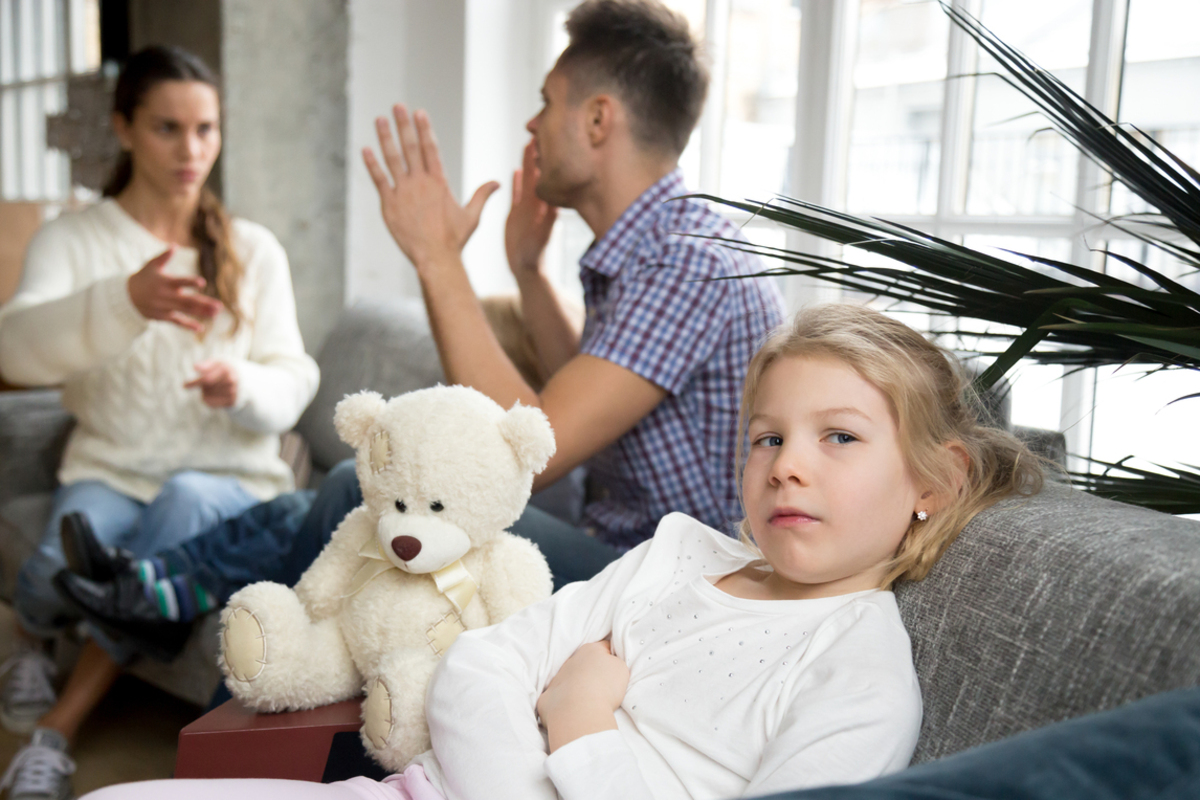Almost no child will spontaneously admit to blaming themselves for their parents' breakup, a study showed — but a deeper look reveals that a third of kids aged six to 12 do have some feelings of self-blame, while a small number are routinely plagued by feelings that the breakup was their fault.

If you've become a single parent and primary caregiver after a breakup, don't assume that your kids aren't plagued by self-blame for what happened. Make sure they know that your breakup or divorce isn't their fault, even if conflicts about parenting were, in fact, one of the driving forces behind the split.
1. Do everything you can to deescalate conflicts with your ex.
Research clearly shows that "prolonged parental conflict [...] increase[s] the child's sense of guilt, and reduce[s] their self-esteem".
Continued parental conflict can have a profoundly negative impact on your children's self-image, and it boosts the odds that your kids will blame themselves for your breakup and everything that surrounds it. Make not fighting, and rather finding workable, semi-friendly, solutions a top priority.
Sharing parental care does lead to better emotional outcomes among kids of divorced parents, but only if you do manage to work your conflicts out. If you only see your ex when you drop your child off or pick them up, and this is always accompanied by shouting matches or cold "we're trying to keep it civil but really can't" type behaviors around, that's bad news. It could really reinforce the (wrong) message that any time you two discuss your child, it causes a fight. This could potentially fuel feelings of self-blame.
2. Explain what led to your breakup — and that it wasn't your kids' fault
Kids who are left in the dark about what caused their parents' breakup or divorce may be more likely to ultimately blame themselves. Remember that younger children, whose abilities to engage in logical thinking are still developing, are more likely to do this than older ones.
Now, you don't have to go into excruciating detail. Keep it age-appropriate. "Mommy and daddy keep fighting and don't love each other any more, but that's not your fault and we will always love you very much" should cover it, as long as the conversation isn't a one-off and you remind your child frequently.
3. Offer your kids the opportunity to process their feelings with something else
The same study also indicated that children did feel a strong need to process their feelings by discussing them with someone. So, if that person's not gonna be you, it has to be someone else, or multiple other people. You could facilitate this in several ways:
- Make sure your children spend plenty of time with trusted adults they feel safe to open up to — maybe a favorite aunt or uncle.
- Make them aware of safe people outside of the family they could talk to, such as a school counselor.
- Discussing parental divorce with other children of divorced parents can be of great help, too.
- Get them therapy. Seriously. This can help so much.
4. Minimize the potential for loyalty struggles
Feelings of guilt can certainly arise when parents force their children to "pick a side". Wanting to be loyal to both parents, this can never end well. Avoid bad-mouthing your ex or coaxing your child into agreeing with you that your ex is an [expletive]. When a child feels able to safely acknowledge that both parents are important to them and they need the love and attention of both parents, guilt has less of a place.
- Photo courtesy of SteadyHealth


Your thoughts on this